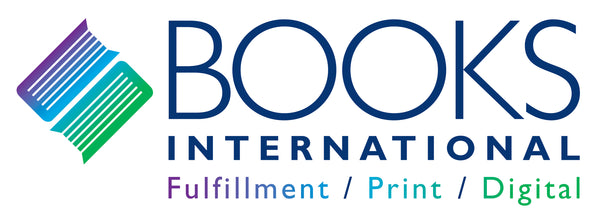1
/
of
1
Anthony Ugolnik
The Illuminating Icon
The Illuminating Icon
Regular price
$31.99 USD
Regular price
Sale price
$31.99 USD
Unit price
/
per
Shipping calculated at checkout.
Couldn't load pickup availability
This is a print on demand book and is therefore non- returnable.
"In Christ there is no East or West," claims a familiar hymn. But the truth is that American Christians know little about Russian Orthodox Christians and harbor many misconceptions about them. In this revealing book Anthony Ugolnik shows how the thousand-year-old Russian Orthodox tradition actively shapes the life of contemporary Russian Christians, and he points out how Russian Orthodoxy can inform and enrich American Christianity. Ugolnik speaks from a unique perspective: of Russian descent, he is an American Christian who has a strong and genuine personal bond with Russian Christians.
Ugolnik begins his discussion by exploring the alienation between Russians and Americans - a cultural and religious alienation that is still very strong today, despite changing rhetoric and glasnost. Americans tend to picture Russian Christians as "cowed and ragged masses"; on the contrary, says Ugolnik, they are "a stalwart, strong community." American Christians also tend to be suspicious about the role of icons in Russian Orthodox worship. But Ugolnik points out that icons are not idols; rather, they are religious objects that "image forth" the majesty of God. This powerful sense of the holy that pervades Russian Orthodoxy could reinvigorate American Christianity.
Indeed, the Russian Orthodox have much to offer American Christians, according to Ugolnik. They place a much greater emphasis on community in their life and worship — an emphasis that could help transform the individualistic faith of many American Christians. Similarly, the Orthodox emphasis on historical and spiritual continuity — in contrast to the imagery of restoration and revival in Reformation Christianity — could strengthen the worship and witness of American Christians. And the Orthodox sense of the beautiful — born of a complex aesthetics that undergirds Russian faith and culture — could enrich the foundation as well as the expression of American Christianity. In the end, American and Russian Christians share the common dilemma of how to relate to the secular world around them, and the Russian Orthodox emphasis on dialogue and engagement could vitalize the way American Christians live out their faith.
In this multifaceted book Ugolnik weaves personal experiences with richly developed explorations of Russian and American belief and incisive observations that draw on the literature, philosophy, theology, and history of both cultures. With both passion and compassion Ugolnik urges Russian and American Christians to look to "the illuminating icon of our incarnate God" for guidance: "Let that icon draw us deep into the mystery of a shared life in the Spirit."
"In Christ there is no East or West," claims a familiar hymn. But the truth is that American Christians know little about Russian Orthodox Christians and harbor many misconceptions about them. In this revealing book Anthony Ugolnik shows how the thousand-year-old Russian Orthodox tradition actively shapes the life of contemporary Russian Christians, and he points out how Russian Orthodoxy can inform and enrich American Christianity. Ugolnik speaks from a unique perspective: of Russian descent, he is an American Christian who has a strong and genuine personal bond with Russian Christians.
Ugolnik begins his discussion by exploring the alienation between Russians and Americans - a cultural and religious alienation that is still very strong today, despite changing rhetoric and glasnost. Americans tend to picture Russian Christians as "cowed and ragged masses"; on the contrary, says Ugolnik, they are "a stalwart, strong community." American Christians also tend to be suspicious about the role of icons in Russian Orthodox worship. But Ugolnik points out that icons are not idols; rather, they are religious objects that "image forth" the majesty of God. This powerful sense of the holy that pervades Russian Orthodoxy could reinvigorate American Christianity.
Indeed, the Russian Orthodox have much to offer American Christians, according to Ugolnik. They place a much greater emphasis on community in their life and worship — an emphasis that could help transform the individualistic faith of many American Christians. Similarly, the Orthodox emphasis on historical and spiritual continuity — in contrast to the imagery of restoration and revival in Reformation Christianity — could strengthen the worship and witness of American Christians. And the Orthodox sense of the beautiful — born of a complex aesthetics that undergirds Russian faith and culture — could enrich the foundation as well as the expression of American Christianity. In the end, American and Russian Christians share the common dilemma of how to relate to the secular world around them, and the Russian Orthodox emphasis on dialogue and engagement could vitalize the way American Christians live out their faith.
In this multifaceted book Ugolnik weaves personal experiences with richly developed explorations of Russian and American belief and incisive observations that draw on the literature, philosophy, theology, and history of both cultures. With both passion and compassion Ugolnik urges Russian and American Christians to look to "the illuminating icon of our incarnate God" for guidance: "Let that icon draw us deep into the mystery of a shared life in the Spirit."
Share


